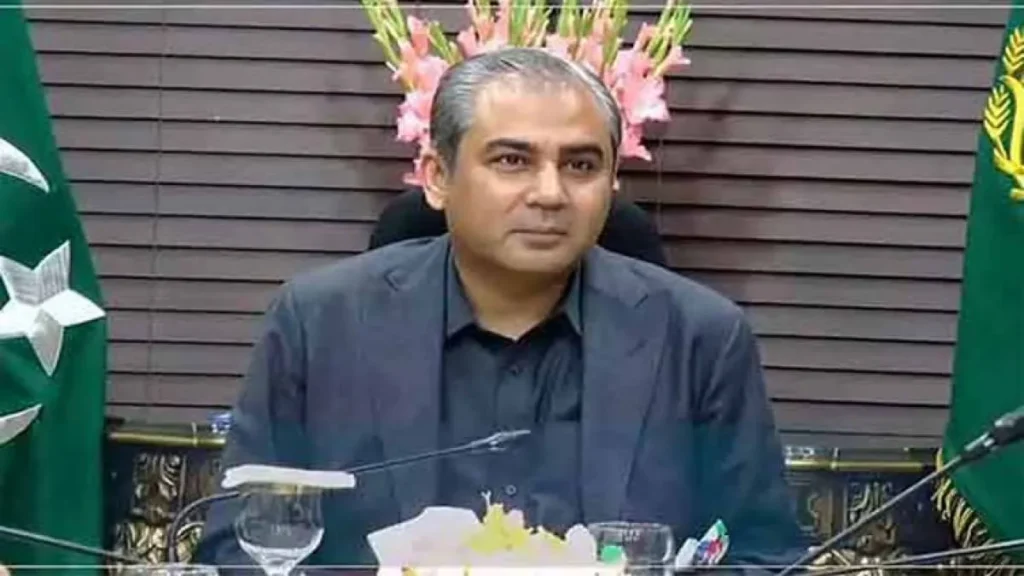ISLAMABAD: The leadership of the banned Tehreek-i-Taliban Pakistan (TTP), based in Afghanistan, along with hostile foreign intelligence agencies, orchestrated the March 26 suicide attack on Chinese engineers in Bisham, the country’s security czar said on Sunday.
In a press conference in Lahore, Interior Minister Mohsin Naqvi revealed that the attack, which killed five Chinese engineers and their Pakistani driver, was planned in Afghanistan and executed with the help of handlers and facilitators based in Pakistan.
“The attack was completely operated from Afghanistan, specifically targeting Chinese personnel in Pakistan,” Naqvi stated. “The TTP leadership planned this attack as a flagship project, heavily funded by enemy intelligence agencies.”
Naqvi demanded the Afghan interim government arrest three alleged terrorists: Bakhtiar Shah, Qari Abdullah, and Khan Lala, along with TTP chief Noor Wali Mehsud, Malakand Commander Azmatullah, and the entire leadership of the outlawed group.
“We want good ties with Afghanistan, but it is imperative they arrest these terrorists, prosecute them, or hand them over to us,” he emphasized.
The minister’s statements are expected to further strain bilateral ties between the two neighbors, as Islamabad has repeatedly pressed Kabul to act against TTP terrorists based in Afghanistan. Despite these requests, the interim Afghan government has not taken measures to prevent militants from launching attacks from these safe havens.
This issue became more pronounced after the TTP escalated violent activities following the collapse of peace talks brokered by the Afghan Taliban in late 2022. “Pakistan has raised this issue with the interim Afghan government and stressed that they should act against the terrorists operating there, but so far, we have not received any positive results,” Naqvi said. He noted that terrorists were exploiting the weakness of the interim Afghan government.
When asked what Pakistan would do if the Afghan government doesn’t cooperate, Naqvi said, “The government will take a unilateral decision.”
Timeline of Events
The interior minister’s remarks came almost two weeks after Inter-Services Public Relations (ISPR) Director General Maj-Gen Ahmed Sharif disclosed that the attack was planned in Afghanistan and the suicide bomber was also an Afghan national. National Counter Terrorism Authority (Nacta) coordinator Rai Tahir, who also addressed the press conference, confirmed that the attacker, identified as Muttaqi alias Taqi, hailed from Afghanistan.
So far, security forces have arrested 11 suspects, including the attacker’s Pakistani handlers. They were identified as Adil Shahbaz, Shafiq Qureshi, Zahid Qureshi, Nazeer Hussain, Faizullah, Faseehullah, Imran Swati, Sakhaullah, Abdullah, Abdul Rehman, and Kamal Khan. The suspects are in the custody of Khyber Pakhtunkhwa’s Counter Terrorism Department, and a chargesheet will be submitted to the court after their remand is completed.
Rai provided a detailed timeline of the events leading up to the attack. The attacker traveled from Afghanistan four months before the attack and stayed with his Pakistani handlers, Adil Shahbaz and Shafiq Qureshi, who prepared him for the operation. The two men were identified through data recovered from the attacker’s partially burnt mobile phone confiscated by security forces at the attack site.
According to Rai, Shahbaz was in contact with Hazrat Bilal, appointed as the shadow governor of the so-called Hazara Wilayah by TTP chief Mehsud in January, with the sole purpose of attacking Chinese nationals. In Afghanistan, two individuals, Khan Lala and Qari Asadullah, allegedly planned the attack and received approval from the TTP chief. The attacker was trained in Afghanistan’s Kunar province and was one of four terrorists who crossed into Pakistan in November 2023.
Their hideout was raided by security forces, but Muttaqi managed to flee and arrived in Swat. Between December 2023 and January 2024, the attacker moved from Swat to Haripur, facilitated by Faseehullah. On January 5, Faizullah took Muttaqi from Haripur and handed him over to Shahbaz in Mansehra, who kept him in Shafiq Qureshi’s house in Uggi, Mansehra, until the day of the attack.
The car used in the attack, a Toyota Vitz manufactured in Japan, was allegedly smuggled into Pakistan from Afghanistan by a Malakand-based car showroom owner identified as Imran Swati, who was contacted by the TTP for Rs 260,000. Swati’s agents collected the car in Chaman, drove it to Zhob, and then to Khyber Pakhtunkhwa. Swati took the car to Chakdara, where his showroom was located.
When asked how a car fitted with explosives managed to travel around 1,000km inside Pakistan without being detected, Naqvi said security officials had stopped the vehicle for checking, but no suspicion was raised. He claimed action had been taken against officials for negligence in checking the car thoroughly.
New SOPs for Chinese Nationals’ Security
Naqvi reiterated that Pakistan “attached great importance to its relationship with China” and that threats from across the western border were “compromising the security of Chinese nationals.” He assured that the security of Chinese nationals in Pakistan was paramount for the government and that new SOPs had been devised and were being strictly implemented.
